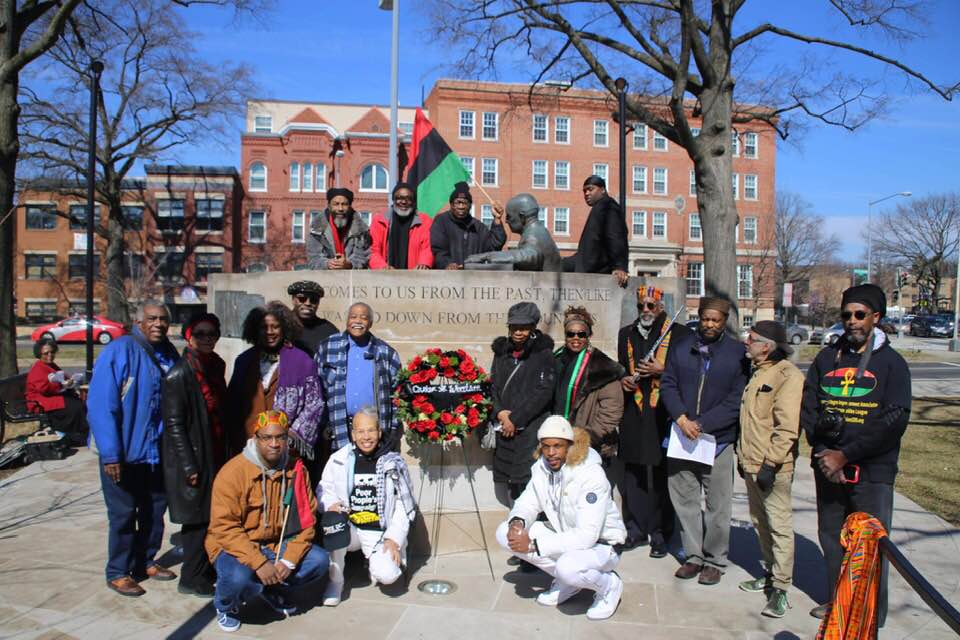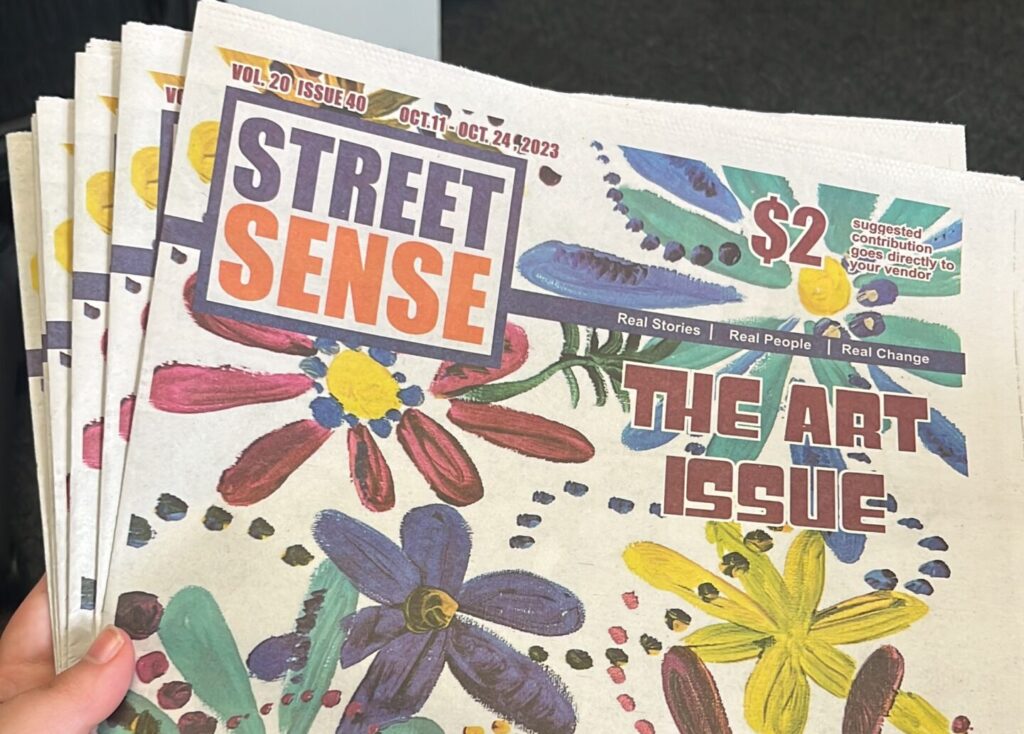Chuck Hicks has celebrated Juneteenth for more than 30 years. A longtime community activist, he’s the founder and director of the D.C. Black History Celebration Committee, which organizes events year-round to recognize the contributions and achievements of Black Americans. Honored as a grand marshal of the MLK Holiday DC in 2021, Hicks has been involved in nearly every Black history celebration in D.C. in recent years.
Each June, Hicks has listened to speakers, danced to music, and attended community events in honor of Juneteenth. For the last two years, he’s coordinated the Black Fathers’ Motorcade, driving through four wards to celebrate the resilience of Black men. Next year, he’s hoping to have a new way to celebrate: serving on a D.C. commission tasked with coordinating Juneteenth celebrations across the city.
Though the District first recognized Juneteenth National Freedom Day in 2003, last year’s designation of Juneteenth as the 11th official federal holiday drew attention to the fact that D.C., despite being the nation’s capital and a historically majority-Black city, has never had an official celebration. A Juneteenth Commission, Hicks believes, could help change that.
The city already uses commissions to plan celebrations for two holidays — Martin Luther King Jr. Day and D.C. Emancipation Day, which recognizes the abolition of slavery in the District in 1862. The commissions, which are made up of community leaders and city officials, coordinate citywide celebrations and run education campaigns. With support from all of his colleagues, Ward 6 Councilmember Charles Allen introduced legislation in January that would create a similar setup for Juneteenth.
“We think it’s absolutely wonderful,” said Hicks, a Ward 6 resident who worked with Frank Smith, director of the African American Civil War Museum, to present the idea for the bill to Allen. “It gives the District the right to officially say we have a Juneteenth Commission and this commission represents the city and its efforts.”
Now, the full D.C. Council is poised to vote on the idea as soon as its June 28 meeting, with a council committee having voted 3-0 on Monday to approve a revised version of Allen’s legislation. A fiscal impact statement estimates it would cost $414,000 to implement the bill in fiscal year 2023 and slightly more in future years, meaning funding would have to be identified in a subsequent budget for the bill to take full effect.
Why we celebrate
In advancing the bill, At-large Councilmember Anita Bonds, chair of the Committee on Housing and Executive Administration, highlighted Juneteenth’s importance as “the longest-running African American holiday.”
The holiday commemorates June 19, 1865 — the day enslaved Black Americans in Galveston, Texas, finally heard that slavery had been abolished. Though President Abraham Lincoln signed the Emancipation Proclamation more than two years earlier, Juneteenth marks the day that all formerly enslaved people were finally able to realize their freedom.
Formerly enslaved people began observing Juneteenth after the Civil War, and the holiday remains important to many Black Americans. But it was only after police killed George Floyd in 2020 and the subsequent wave of Black Lives Matter protests that long-standing attempts to win broader recognition among non-Black Americans prevailed. Last year, President Joe Biden signed a bill two days before Juneteenth to make the celebration a federal holiday.
A Districtwide celebration
The D.C. commission is not meant to replace existing Juneteenth celebrations, but to improve and supplement them, Hicks said. The commission would have a salaried executive director and an undetermined budget, which would fund local celebrations and education campaigns. Expected tasks would also include helping to coordinate currently separate celebrations.
“Anything officially recognized gives [Juneteenth] more credence,” Hicks said.
Having an official city celebration of the holiday is symbolically important, according to Lopez Matthews, D.C.’s state archivist.
“It shows that the government understands the value of history,” Matthews said in an interview. “It’s also representative of the people of the city, of the residents of the city. This is something that’s important to them, so it’s important to the government.”
As state archivist, Matthews would have the opportunity to recommend speakers and historical documents to be part of official celebrations of the holiday. He’s especially interested in developing a public information campaign, which he thinks is crucial to remind D.C. residents of why Juneteenth is a holiday.
“Part of the importance of studying history is that we remember the things we don’t want to go back to,” Matthews said. “This is really everyone’s history because it happened in the United States, so everyone should know about it and everyone should learn about it.”
This sentiment rings true for Hicks since the fight for equality is not over. Emancipation paved the way for the rise of multiple civil rights and racial justice movements over the next century and a half, including recent calls to protect voting rights. This is especially important in D.C., Hicks said, where 700,000 residents still don’t have voting representation in Congress due to a lack of statehood.
“It ain’t all over yet. This is not all over,” he said.

Logistics up for debate
While the idea of the Juneteenth History and Planning Commission is widely supported, some community leaders who testified at a May 19 hearing on the bill have concerns about how it would be organized.
As marked up on June 13 by the Committee on Housing and Executive Administration, the bill proposes placing the commission under the purview of the city’s Office of the Secretary, which oversees the MLK and Emancipation Day commissions. At last month’s hearing, Secretary Kimberly Bassett testified she supported the commission’s creation, and her office — which includes the D.C. Archives — would be able to help with programming.
However, Hicks and other leaders are worried Bassett’s office — a catchall for varied administrative tasks, including notary services and maintaining public records — won’t have adequate time and resources to devote to the Juneteenth Commission. Hicks suggested instead designating the D.C. Commission on the Arts and Humanities — an independent agency that coordinates grants, workshops and events — to oversee the commission, in hopes the holiday would get more attention.
Another question is who should be on the commission. Hicks would like to see it led mainly by community members. If approved, this would be the first time the council appoints members to serve on a holiday commission; both the MLK Day and Emancipation Day panels are comprised entirely of D.C. officials and mayoral appointees.
The current version of the bill specifies seats for the director of the African American Civil War Museum; representatives of Howard University and the University of the District of Columbia; the director of the Mayor’s Office on African American Affairs; the secretary; the executive director of the Commission on the Arts and Humanities; representatives of the Emancipation Day and MLK Day commissions; and 11 community representatives. Three of the community representatives would be nominated by the mayor, and the other eight by the council.
Regardless of who ends up on the commission, Hicks stressed the importance of including young people and non-Black residents.
“The Juneteenth commission should not be viewed as a Black commission — it should be viewed as a whole commission representing the city,” Hicks said.
Once the commission is established, D.C. residents would be able to attend commission meetings and offer feedback on what they’d like to see planned for the holiday. And Hicks hopes a successfully expanded celebration will bring new economic activity and energy to the city.
“Everybody in the country will want to get to D.C. for the Juneteenth celebration,” he said.
This article was co-published with The DC Line.
Annemarie Cuccia covers DC government and public affairs through a partnership between Street Sense Media and The DC Line. This joint position was made possible by The Nash Foundation and individual contributors.








